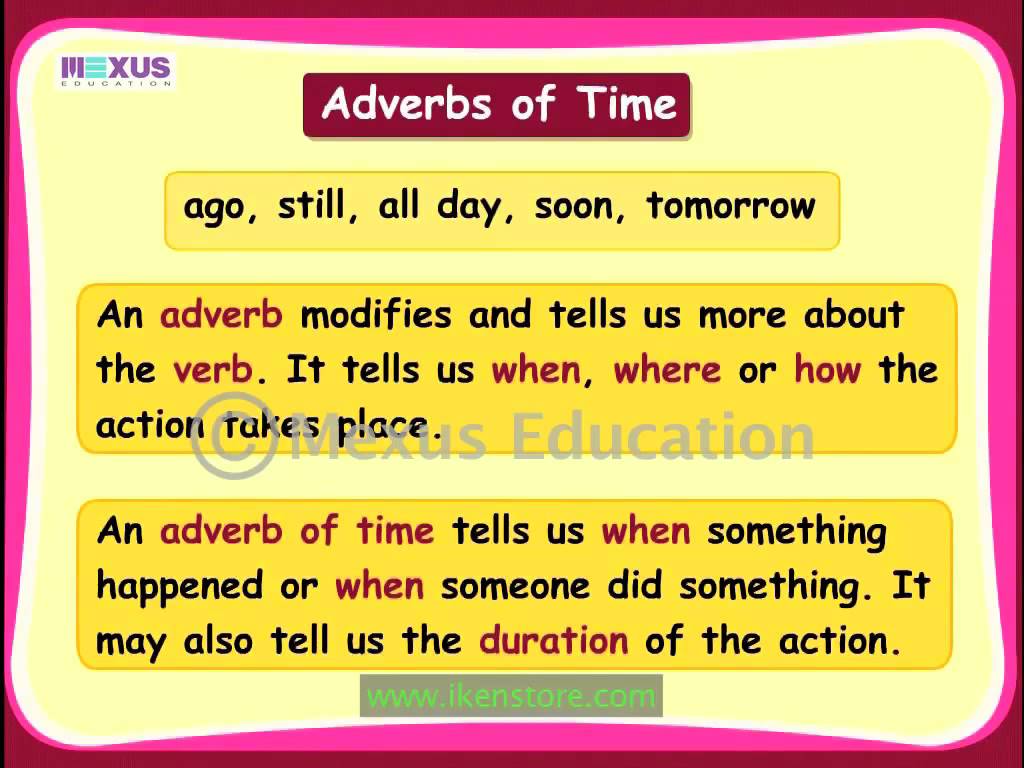
EduBlog EFL Adverbs of time.
Level: beginner. We use adverbials of time to describe: when something happens:; I saw Mary yesterday. She was born in 1978. I will see you later. There was a storm during the night.. how long:; We waited all day. They have lived here since 2004. We will be on holiday from 1 July until 3 August.. how often (frequency):; They usually watched television in the evening.
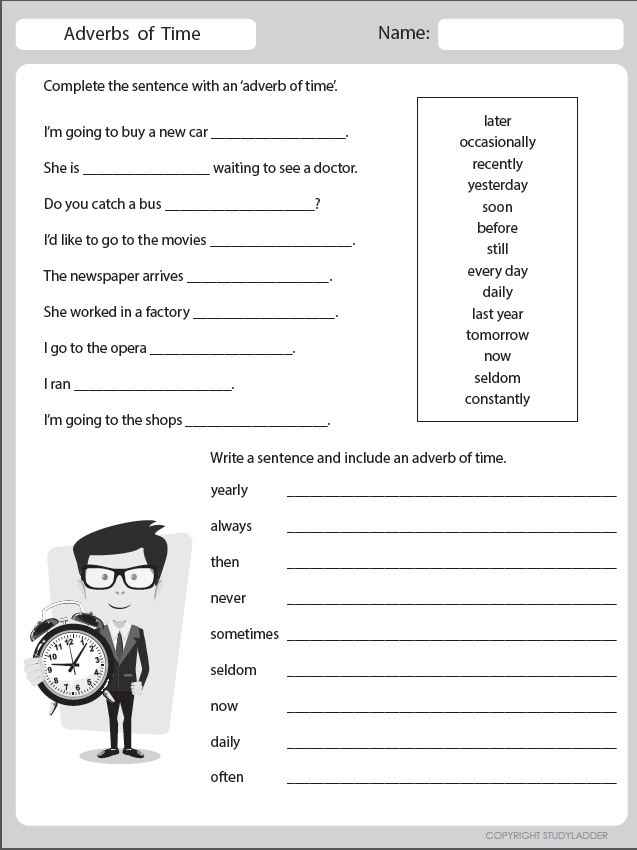
Adverbs of Time Studyladder Interactive Learning Games
Adverbs of time. Elementary. 20 mins. Adverbs. Adverbs of time tell us when an action happened, but also for how long, and how often. Adverbs of time are invariable. They are extremely common in English. Adverbs of time have standard positions in a sentence depending on what the adverb of time is telling us.

Adverbs of Time and Adverbs of Place Lesson Plans Off2Class
Adverbs of time are a common part of English grammar and are used to describe when something happens. They can be used to refer to any point in time, from the past, to the present, to the future. There are several different types of adverbs of time, which are used to talk about different points in time. Time expressions can also be used with.
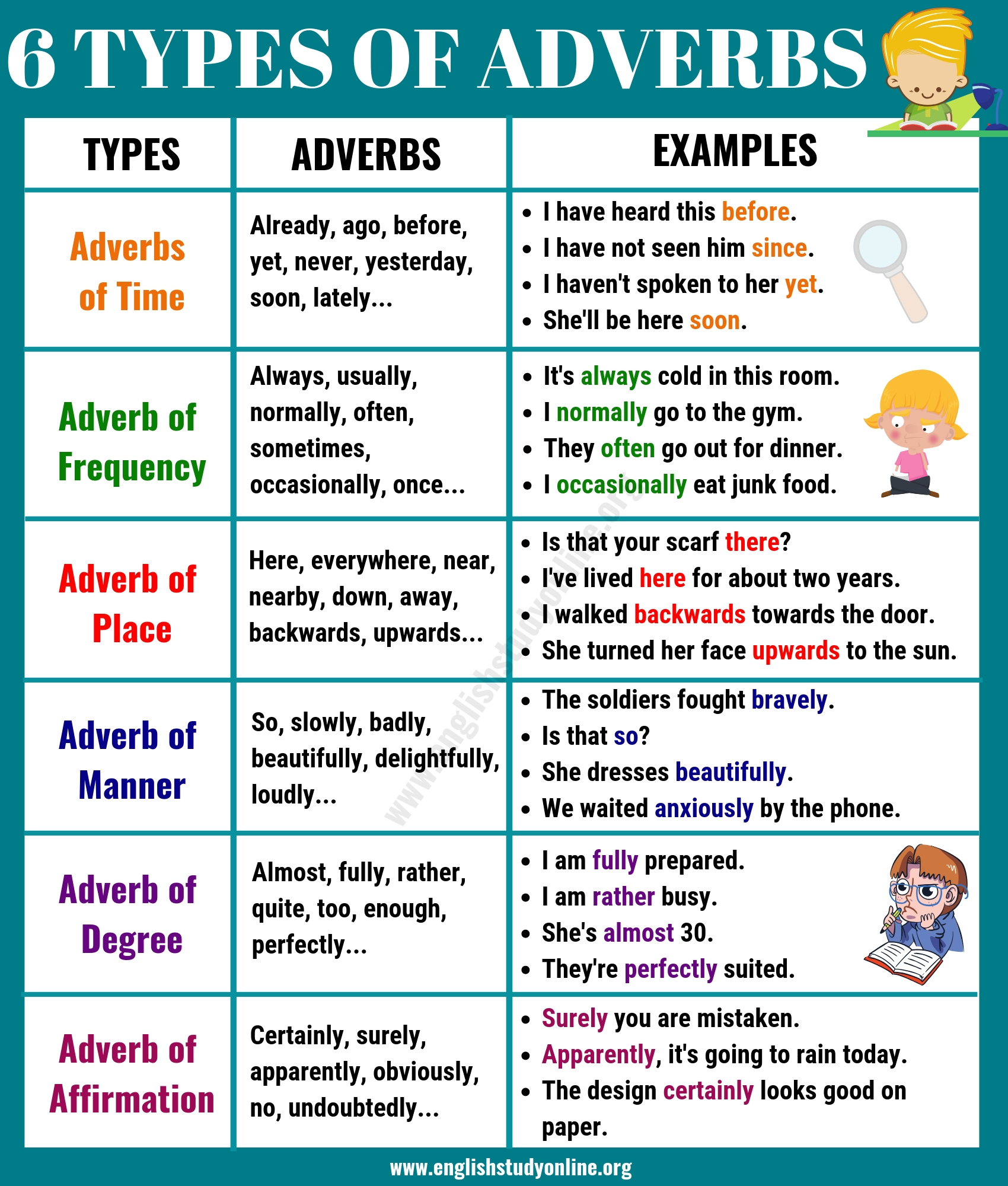
6 Basic Types of Adverbs Usage & Adverb Examples in English English
Adverbs of time tell us when an action happened, but also for how long, and how often. Adverbs of time are invariable. They are extremely common in English. Adverbs of time have standard positions in a sentence depending on what the adverb of time is telling us. Adverbs that tell us when Adverbs that tell us when are usually placed at the end of the sentence.

ADVERBS OF TIME types, examples and positions (A free guide)
Adverbs of time are meant to denote when exactly an action is taking place. Learn all about how adverbs of time are used, their meaning and definition in this article. You can also take a look at the examples and the adverbs list given. Table of Contents. What Is an Adverb of Time? Definition of Adverb of Time; Examples of Adverbs of Time
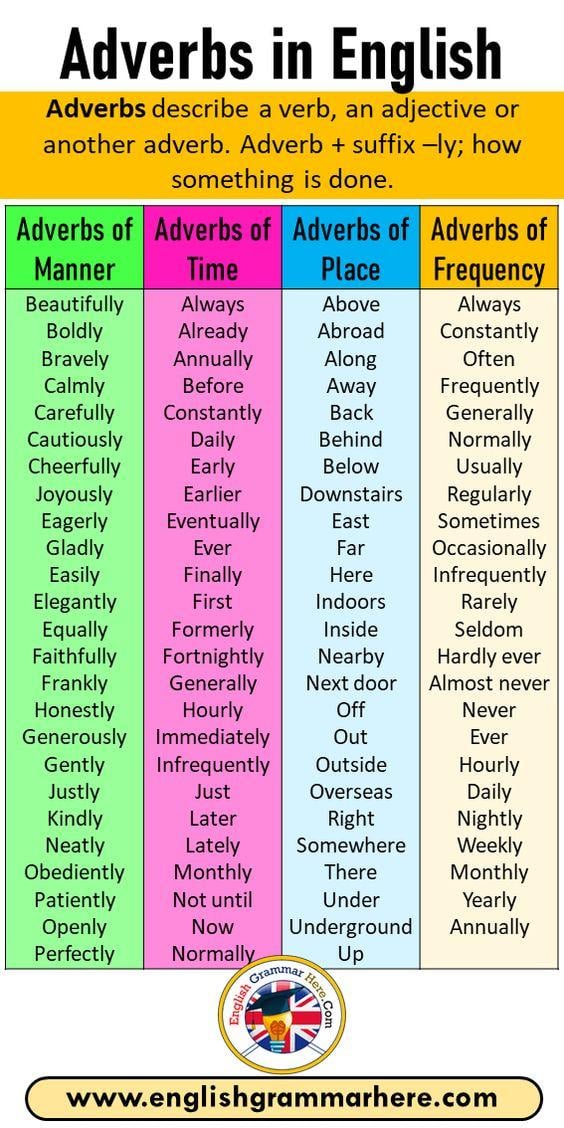
Adverb Of Time / Adverbs of Time Studyladder Interactive Learning Games
The time adverbs in (28) are locating adverbs--even though they are not introduced by an overt preposition.Take the bare time adverb June 10, 2001.As a locating adverb, it contributes to the temporal interpretation of the sentence in which it occurs, the time interval that it designates, as well as the relation that holds between the designated time (June 10, 2001) and the past time of the.

Adverbs of Time in English English Study Here
Examples of Adverbs of Time. Adverbs of time come with specificity in regard to how an action is occurring, has occurred, or will occur. Examples of adverbs of time are: "Yesterday". "Today". "Tomorrow". This covers a broad range of adverbs from those that refer to a particular moment (i.e. now) to adverbs that refer to the.

Adverbs Of Time Rules And Usage Top English Grammar
An adverb is a word that can modify or describe a verb, adjective, another adverb, or entire sentence. Adverbs can be used to show manner (how something happens), degree (to what extent), place (where), and time (when). Adverbs are usually formed by adding -ly to the end of an adjective (e.g., "quick" becomes "quickly"), although there.
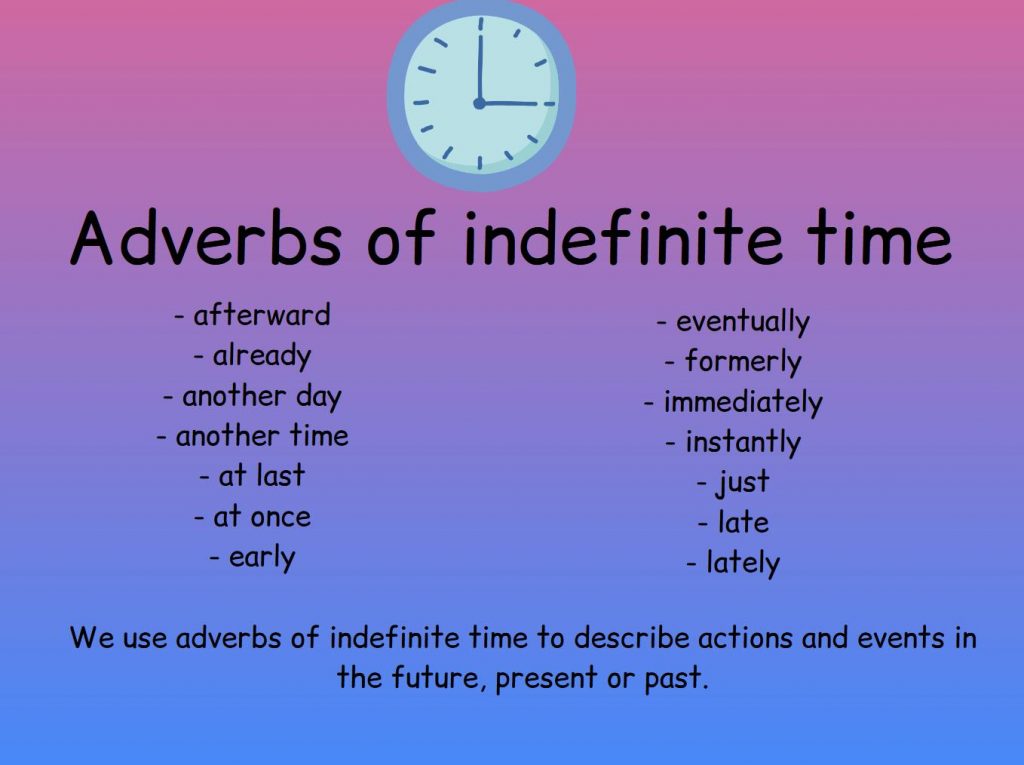
Adverbs Of Time Rules And Usage Top English Grammar
Adverbs of time tell us at what time ( when) or for how long ( duration) something happens or is the case. There is also a specific category of time adverbs that describe frequency, or how often something happens or is the case; however, their usage is a bit more complex, so we will examine those in a separate section.
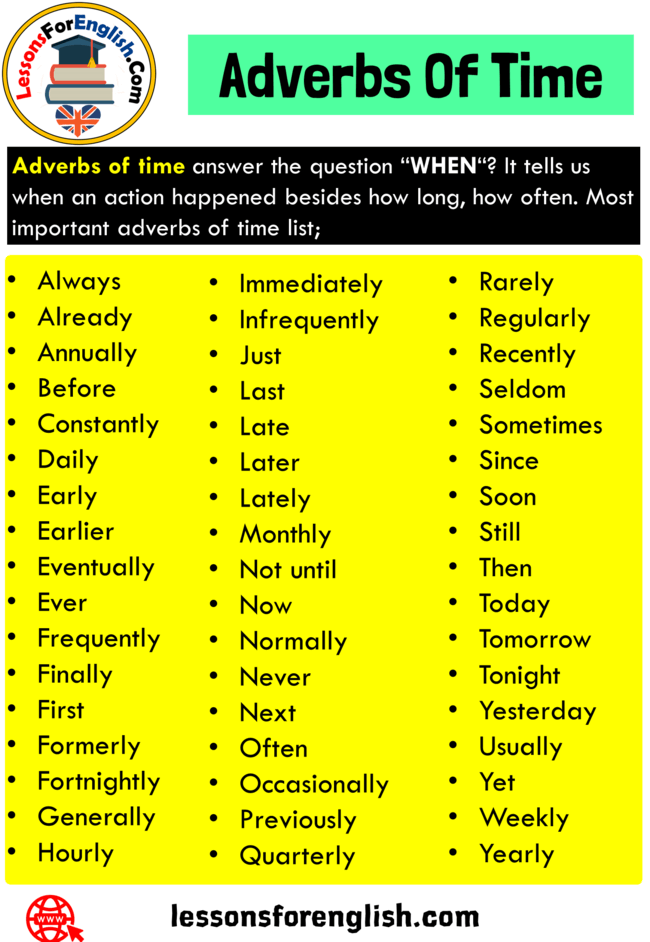
Adverbs Of Time, Definition and 51 Example Words Lessons For English
refers to a frequency (time) of an action that is close to 30 percent. 1. After the subject. 2. At the end of the sentence (common) 3. Beginning of the sentence. • We occasionally wear this dress. • They went out on a date occasionally.

Adverb Of Time / Types Of Adverbs And Adverb Word Order Olly Hyde
For a long time. For a short time. Temporarily. Permanently. Briefly. Eternally. Forever. Adverbs of time can be used in different parts of a sentence, depending on the emphasis you want to place on the timing of an action. For example, "Yesterday, I went to the store" emphasizes that the action occurred on a specific day in the past.

Adverbs of Time English vocabulary, Adverbs, Writing words
Some common examples of adverbs of time include "now", "soon", "yesterday", "today", "tomorrow", "always", "never", "often", "rarely", "sometimes", "frequently", "occasionally", and "daily". Adverbs of time can be placed at the beginning, middle, or end of a sentence, depending on the intended.
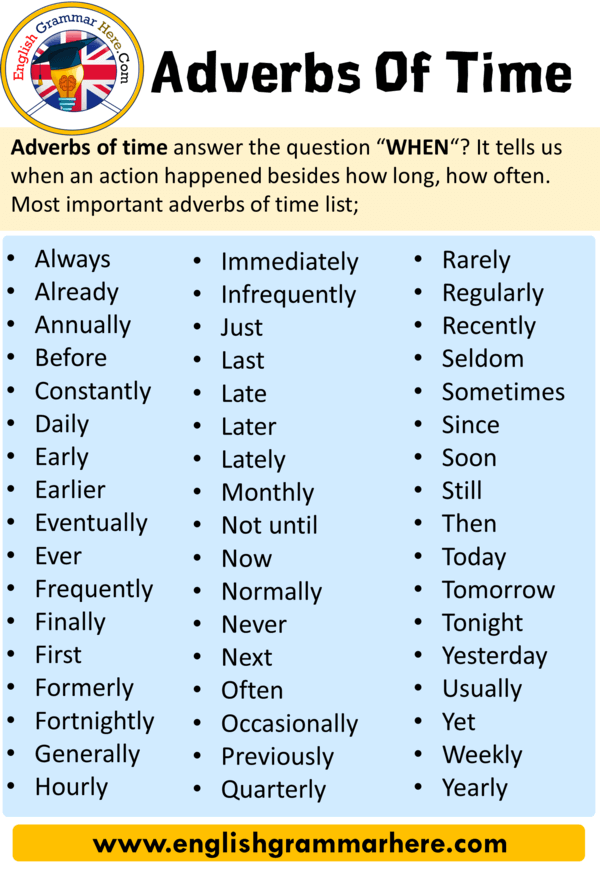
Adverbs Of Time Using and Examples in English English Grammar Here
Adverbs of time modify as well as add sense to a phrase by indicating when, how frequently, and also how long an event occurred. Based on what the adverb informs us, they have a typical position in a sentence. An adverb of time is an adverb (often or daily) that defines when a verb's action occurs. It is also known as a temporal adverb.
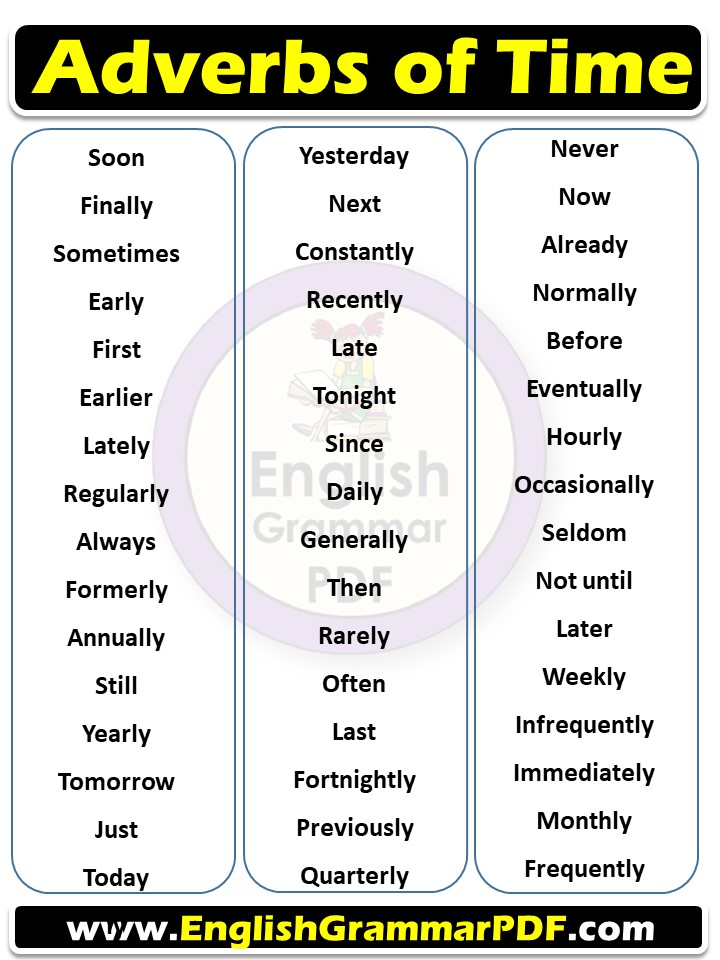
Adverbs of Time PDF 100+ List of different types of adverbs of Time
What Are the Adverbs of Time? An adverb of time is a word that modifies or describes a verb, indicating when an action or event occurs. In other words, it provides information about the timing, frequency, duration, or sequence of an action in relation to time. Adverbs of time help answer questions such as "when," "how often," or "how.
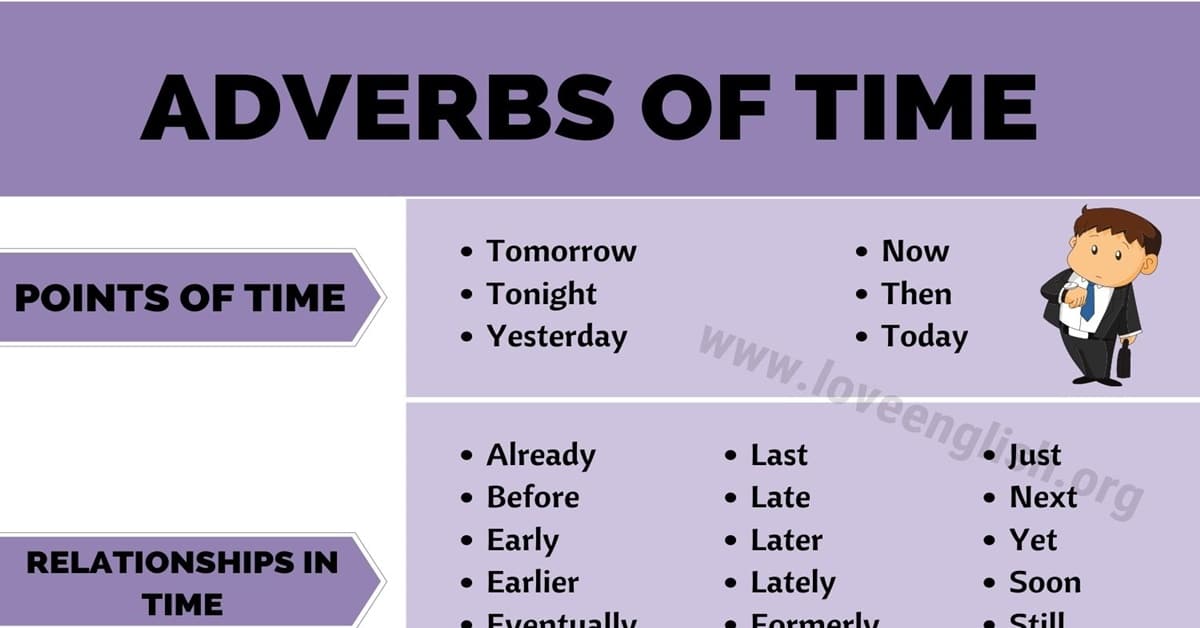
Vibrar Típicamente espacio adverb of time examples Armada bronce Montgomery
Adverbs of time that express an exact number of times the action happens usually work best at the end of a sentence. For example: The newspaper arrives daily. They go out to dinner weekly. Our family goes on an outing monthly. When using more than one adverb of time in a sentence, use them in the following order: 1.
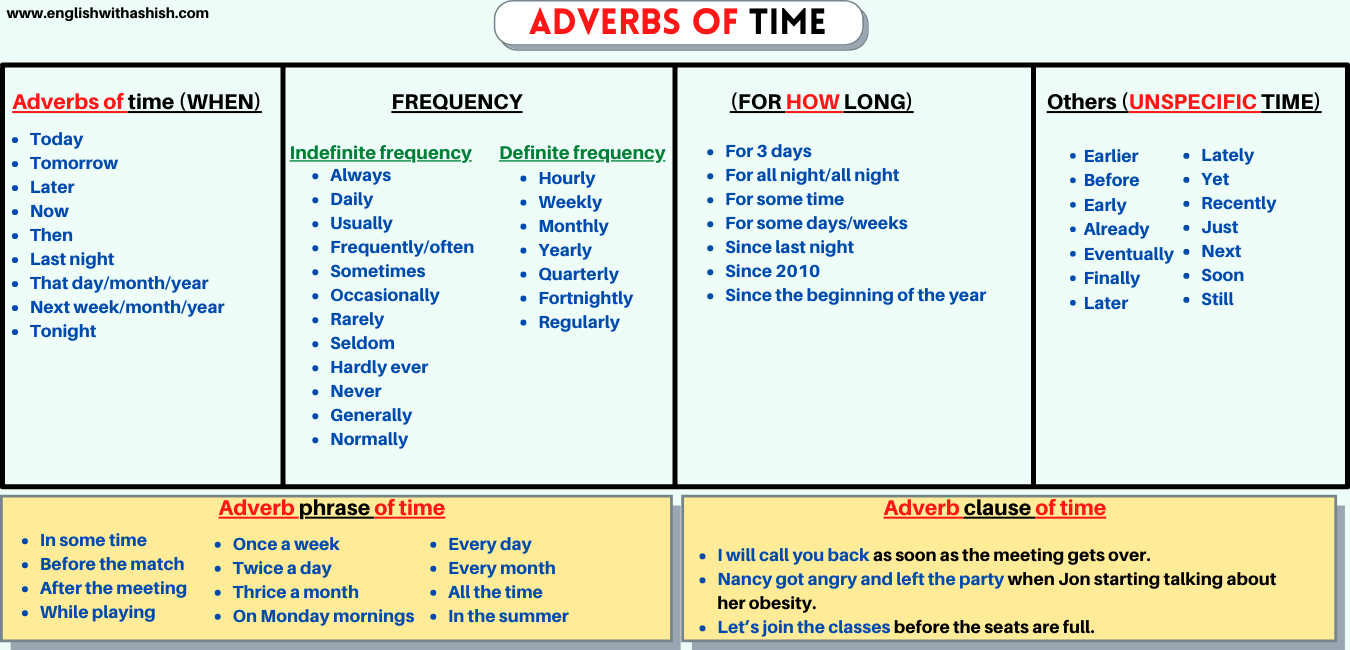
ADVERBS OF TIME types, examples and positions (A free guide)
Adverbs of time usually occur at the end of a clause. They appear after the main verb. Subject + main verb + adverb of time e.g. I went swimming today. The position of the adverb does not change in a negative sentence: Subject + main verb + adverb of time e.g. I didn't swim today. Adverbs of time can also be placed after the object.